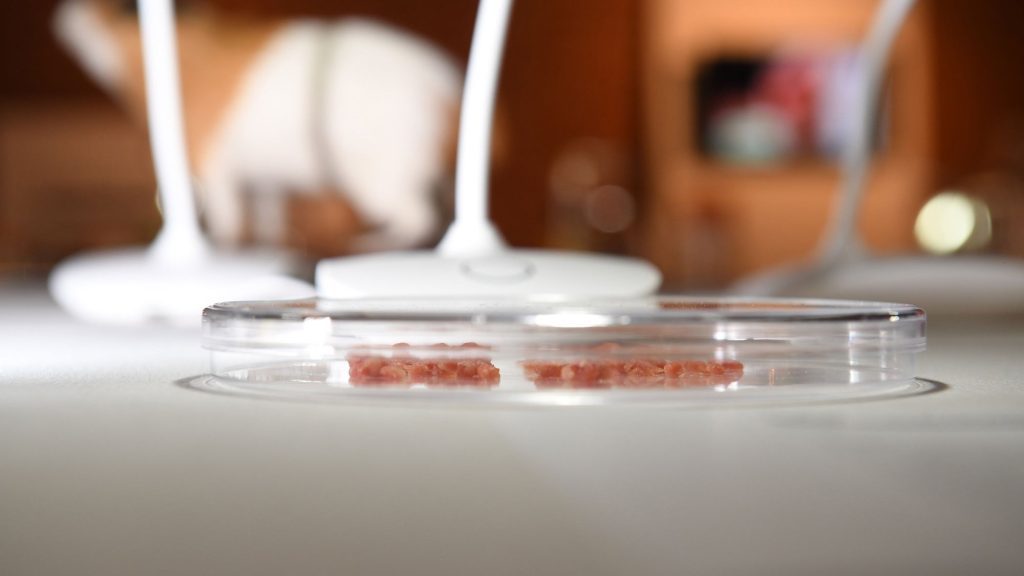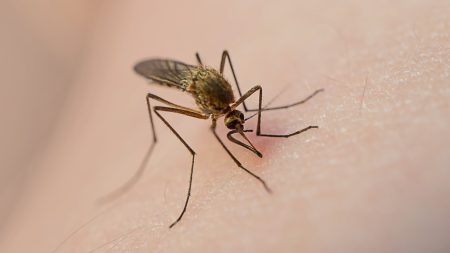Cultivated meat, more commonly known as lab-grown meat, is at a turning point. Lab-grown chicken and beef produced from cells in a petri dish are not yet available to the average consumer, but lab-grown chicken has received approval from the US Department of Agriculture. Two US restaurants in San Francisco and Washington DC have already offered lab-grown choice meat on their menus, and more may follow as prices decrease. However, new bans on lab-grown meat are gaining support in mostly conservative-led states, which could threaten the industry's progress.lab-grown meatThis week, Florida became the first state to enact a ban on lab-grown meat. Governor Ron DeSantis signed legislation making it illegal to produce, sell, possess, or distribute lab-grown meat within the state. Violating the new law could result in misdemeanor charges. Similar legislation is currently being discussed in Alabama, Arizona, and Tennessee. Violators of those bills, if they become law, could face imprisonment or fines. US Department of Agriculture approval. San Francisco and Washington DC .
This week, Florida officially became the first state to make good on threats to ban cultivated meat. On Tuesday, Governor Ron DeSantis signed into law legislation . Alabama, Arizona, and Tennessee.
“Florida is fighting back against the global elite’s plan to force the world to eat meat grown in a petri dish or bugs to achieve their authoritarian goals,” DeSantis said during a press conference Wednesday. “We will save our beef.”
Why do Republican-led states want to ban lab-grown meat?
Republican lawmakers opposed to cultivated meat have tried to link the industry to a larger supposed culture war. DeSantis, for example, has previously described lab-grown meat as “part of a whole ideological agenda” and claims it would threaten ranchers. Others, like Florida Department of Agriculture and Consumer Services Commissioner Wilton Simpson, who supports the law, have called lab-grown meat a “disgraceful attempt to undermine our proud traditions and prosperity.”
Lawmakers and cultivated meat critics have also questioned the safety of lab-grown meat, though often with arguments lacking evidence. The most common safety-related critics of lab-grown meat revolved around the use of so-called “immortalized” cells in the cultivation process. These specific types of cells are essentially able to duplicate infinitely, which is beneficial for cultivated meat startups that want to grow large quantities of meat from a small sample. However, it can also sound eerily similar to the process of rapid cell reproduction that causes cancer.immortalized” cells in the cultivation process.
Critics of the industry have focused on this supposed connection and suggested that eating lab-grown meat could cause cancer. However, there is currently no evidence supporting these claims. Food regulators in the US, Australia, and Singapore have determined that cultivated meats are safe to eat, and cancer researchers talking with Bloomberg Businessweek last year said it’s “essentially impossible” to get cancer from eating cultivated meat. Nonetheless, critics have continued to emphasize this point. A recent ad campaign aiming to discredit the industry relied on this theory and reportedly depicted a student at a science fair claiming the cells in the cultivated meat “grow like a tumor” and are “bath[ed] with chemicals.”
Republican opposition to lab-grown meat isn't just about outright bans. More than a dozen states are working on rules that limit how lab-grown meat companies can label their product. Some states, like Kentucky, Maine, and Mississippi, have made rules to stop companies from using the word "meat" on their labels. Others want lab-grown meat companies to provide information on their packaging. On a national level, Democratic senator Jon Tester and Republican senator Mike Rounds have even proposed a law to prevent lab-grown meat from being used in public school meals. All of this is happening even though lab-grown meat is not yet available to consumers in the US. introduced legislation seeking to ban cultivated meat from being used in public school lunch and breakfast programs. All of this has occurred despite the fact that lab-grown meat still isn't commercially available to consumers in the US.
Hasty bans threaten cultivated meat innovation
Supporters of lab-grown meat worry that laws like the recent one in Florida could stop the industry from growing before it gets a chance. The Good Food Institute, which supports lab-grown meat, said that such laws take choice away from consumers and limit innovation that could create new jobs. PopSci laws like these take choice away from consumers and limit innovation that could lead to new jobs.
The Good Food Institute's Pepin Andrew Tuma questioned why politicians with no food safety experience are getting involved in lab-grown meat, which has been approved as safe by the USDA and FDA. He said Floridians should be able to choose what kind of meat they want to eat, without government restrictions. He also criticized Florida's decision, saying it contradicts the state's goal of being open for business.
GOOD Meat, a top lab-grown meat startup, shares these concerns and sees the law as a setback for everyone.
We’re not going anywhere. pic.twitter.com/8mOMnxuoQz
— GOOD Meat (@GOODMeat) May 1, 2024
In a state that claims to value freedom and individual liberty, the government is now telling consumers what meat they can and can't buy, according to a statement from GOOD Meat.
There are still many unknowns about lab-grown meat. Industry supporters say it could make farming more sustainable and reduce greenhouse gas emissions, while others believe it could provide a more ethical option for meat eaters. However, lab-grown meat companies will need to significantly reduce prices and improve taste for this vision to become a reality. It's also worth noting that lab-grown meat may require blood from unborn cow fetuses, so it's not free from ethical concerns. These challenges are already difficult to overcome, and state bans on lab-grown meat make the situation even tougher. Governor Ron DeSantis: ‘We will save our beef.’. Others say lab-grown meat could one day offer carnivores an ethical alternative to eating meat that reduces animal suffering. But that supposed future will depend largely on lab-grown meat firms significantly driving down prices and simultaneously improving their product’s taste. Lab grown meat can also require blood drawn from unborn cow fetuses, so it’s not totally immune from ethical scrutiny either. Those barriers are difficult enough on their own to overcome even in the most permissive legal environment. Statewide bans on cultivated meat threaten to make an already difficult dilemma even harder.









